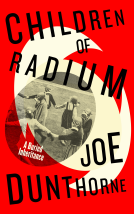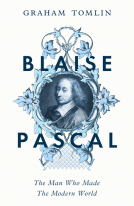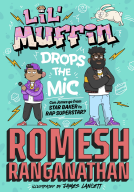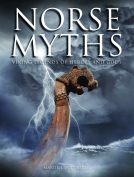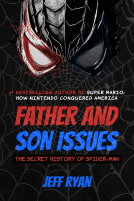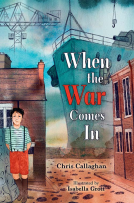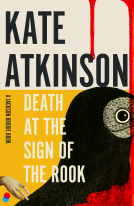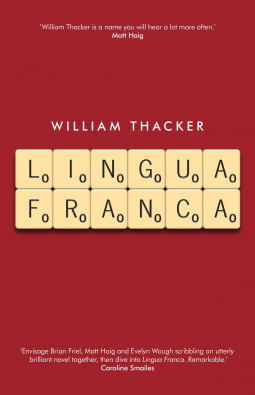
Lingua Franca
by William Thacker
This title was previously available on NetGalley and is now archived.
Send NetGalley books directly to your Kindle or Kindle app
1
To read on a Kindle or Kindle app, please add kindle@netgalley.com as an approved email address to receive files in your Amazon account. Click here for step-by-step instructions.
2
Also find your Kindle email address within your Amazon account, and enter it here.
Pub Date 16 May 2016 | Archive Date 21 Aug 2017
Description
Longlisted for the Guardian Not the Booker prize 2016
'William Thacker is a name you will hear a lot more often.' -- Matt Haig, author
'Remarkable.' -- Caroline Smailes, author
'This is bloody brilliant.' -- Heydon Prowse, writer of the Bafta-winning The Revolution Will Be Televised
There's a problem with Barrow, but it can be fixed. You just need to change the name to Birdseye. Birdseye-in-Furness...
Miles Platting is pulled from the ruins of a shipwreck into a world in which no one will speak to him.
The founder of Lingua Franca - a naming rights agency committed to renaming every UK town after a corporate sponsor - Miles recounts the story of his quest for linguistic supremacy to anyone who'll listen. Confined to his hospital bed in a deathly quiet ward, Miles seeks to find his colleagues and reunite with his true love.
But in doing so, Miles must confront his deepest held convictions and consider, what's in a name? in a world where the spoken word has been replaced with silence.
Advance Praise
'William Thacker is a name you will hear a lot more often.’ Matt Haig, author
‘This is bloody brilliant.' Heydon Prowse, Writer of the Bafta winning The Revolution Will Be Televised
Marketing Plan
Available Editions
| EDITION | Ebook |
| ISBN | 9781785079757 |
| PRICE | £2.99 (GBP) |
Featured Reviews
 Mandy J, Reviewer
Mandy J, Reviewer
William Thacker’s second novel is as engaging and thought-provoking as his first. I read Charm Offensive when it came out and found the story of a politician whose life is turned upside down by a media slur, something that happens all too often, both topical and very human. The same can be said of Lingua Franca. Here Thacker has turned his attention to the hold corporations have over all of us, and in particular to corporate sponsorship. The scenario is all too plausible. Frighteningly so. Lingua Franca is a naming rights agency, selling every UK town to a corporate sponsor and renaming it for that sponsor. Most towns are only too happy to cash in and sell their name for short-term gain – but it may be that changing Barrow-in-Furness into Birdseye-in-Furness is just a step too far. What happens next is a clever, original and insightful exploration of language, greed, corporate power and is both amusing and hard-hitting. Well-written and well-paced, it’s good fun but with a serious undercurrent. Very enjoyable indeed.
 Sam S, Reviewer
Sam S, Reviewer
Thank you to NetGalley and the publisher for the chance to read this book! As a linguistics student, this book was right up my alley and I definitely enjoyed all the discussion about a language should really be (hint: there's not really a right answer)!
We’re told this story in a series of flashbacks as Miles attempts to make sense of the world he’s woken up in. While the nurses and doctors won’t speak to him, they want him to “tell” his story, write it down on the many pieces of paper they provide him, and so we’re taken back to the beginning with Miles and his dreams for his company, Lingua Franca.
This company help towns out of bankruptcy by pairing them with corporate sponsors and so towns end up with names like Stella Artois, Powerade, and Carphone Warehouse. Yes, it’s as ridiculous as it sounds. The story is funny, more often intentionally absurd and it’s meant to be. They’re naming towns after frozen fish companies, for goodness sake! But it gets you thinking.
Having a corporate sponsor for your town means you’re raised from bankruptcy, you can have a flourishing economy again, fully funded services to help you achieve a healthy population. But does giving up your name contribute to the death of language? The humour is cleverly used here, drawing you in with this laughter while mixing you up in this very complicated debate.
There are a lot of interesting things said about language in this book and I honestly don’t know exactly where I stand in this argument. While you could say that replacing a town’s name removes its history, the pride people feel as citizens, it’s nothing that hasn’t been done before and it’s obviously doing some good in bringing these towns back to life. It’s hard to say which reasoning outweighs the other.
What was surprising, and a little unfortunate, is that the scene we open with is never really explained. Miles was in a shipwreck but how that occurs is left for the reader to speculate, I suppose. I didn’t find it fair that it was left open, not just because of unanswered questions but it felt that the characters themselves found it unimportant. I would think such a catastrophe that could result in many injuries would be treated with a little more compassion.
My issues came more with the ending of the book, though as always no spoilers here. I don’t know that I agreed with how the central argument was realized. It felt a little too easy, too simplified, and very much like one side just gave up without a fight. I’m not saying that I sided with one group more than the other but I don’t think this argument can be clearly segmented into wrong vs. right. There’s a lot at work in these discussions, many complex issues that are actually brought up in the book, so it felt like we lost something with the ends so neatly tied up to finish our story.
Readers who liked this book also liked:
Sara T. Behrman
Children's Fiction, Outdoors & Nature, Parenting & Families

